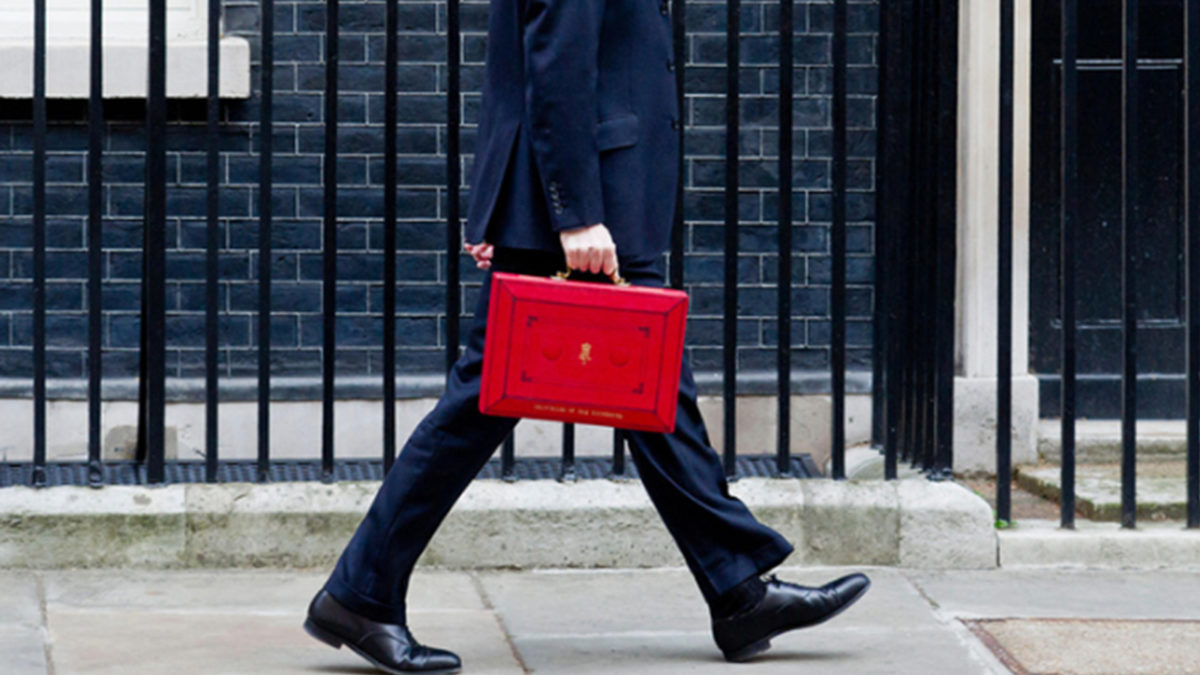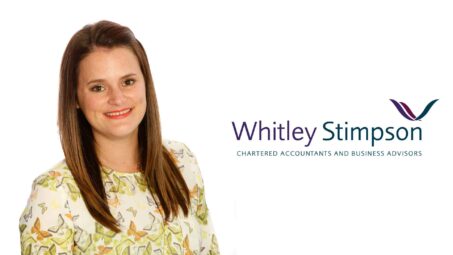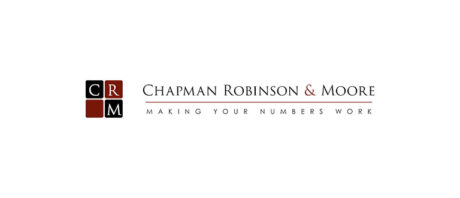
CRM Summary: The Chancellor’s Spring 2021 Budget
Chancellor Rishi Sunak presented the 2021 Budget on 3 March 2021, as we hopefully near the end of the restriction caused by the Covid-19 pandemic.
It is worth noting that in recent years, it has become the normal policy for the Budget to be delivered in October with most announcements taking effect from the following April, with the Spring Statement being fundamentally an economic update. Therefore, we may have a second Budget in the Autumn, when hopefully the indicators of the rate and scale of economic recovery are better known, so please watch this space!
As expected, the focus of the Budget was on jobs retention and creation (a further £65bn of measures were announced today), with a number of significant measures aimed at this, along with some details as to how the public finances would be put back towards balance by tax rises more than austerity (in fact the Chancellor confirmed they would be sticking with previous infrastructure investments announced).
To see the main announcements, and a reminder of other changes previously announced over recent months, and practical guidance on these points and how they may affect you and your business, please read below:
Employers
Furlough Scheme
It was confirmed shortly before the Budget that the Furlough scheme, more formally called the Coronavirus Job Retention Scheme (CJRS) would be extended from its current closing date of 30 April 2021 until 30 September 2021. However, although furlough will continue to be paid to staff at 80% (max £2,500), the amount of the grant will drop to 70% of wages for July (max £2,187.50) and again to 60% for August and September (max £1875), so on top of employer’s NIC and pension contributions (plus accrued holiday pay), there will be an increasing cost to furlough. It is anticipated that most people would be on flexible furlough whilst demand builds rather than fully furloughed, due to the net cost to employers of keeping employees furloughed as the level of grant drops.
Planning point: In recent months, there have been strict deadlines for making claims under the scheme. Please make sure you claim for each month on a timely basis (normally the 15th of the following month) to ensure you do not miss out on this support for hours your employees are not working.
Planning point: Planning point: Please remember that national minimum age and national living wage rates will go up from 1st April 2021. This may mean you have to increase the wages for staff on flexible furlough, though this does not have an impact on the furlough part of their pay.
Please see https://www.litrg.org.uk/latest-news/news/200414-any-questions-will-my-furlough-pay-be-based-my-old-minimum-wage-rate-or-new for details of this.
Please also see https://www.gov.uk/national-minimum-wage-rates and https://www.gov.uk/guidance/calculate-how-much-you-can-claim-using-the-coronavirus-job-retention-scheme
IR35 changes
A reminder that the extension of the IR35 rules applying to public sector engagers are being rolled out to the private sector from April 2021. This means that from April 2021, the end user of a contractor (with an exemption for small businesses, using Companies Act definitions) will be responsible for ascertaining the correct treatment of the engagement from a tax perspective. Details of these changes, which were originally due to take effect from April 2020, can be found here https://crmoxford.co.uk/news/contractor-challenges-around-the-corner-ir35-latest/
Planning point: We can assist both parties by providing access to the leading authorities in contract reviews to help minimise risks to all parties. Please get in touch with your usual contact at CRM if you would like to find out more.
Reminder about changes to Statutory Sick Pay and other measures in relation to Coronavirus
A reminder of announcements in the 2020 Budget regarding sick pay: It had already been announced that Statutory Sick Pay (SSP) would be payable from day one of illness when it relates to Coronavirus rather than day four. There were some further announcements in this regard. Firstly, this treatment is extended to those self-isolating but without symptoms (e.g. due to travel history, or close contact with an infected individual) and also to those shielding
also see and
(unless they are furloughed, as will often be the case). Significantly, it was announced that, rather than being borne by the employer, SSP paid in relation to Coronavirus would be reclaimable from the HMRC (up to 2 weeks per employee) where the employer has less than 250 employees, measured at 28 February 2020. Please note that regulations applying to other illnesses are not affected by this announcement, so someone absent for unrelated illness will be paid SSP from day four, and this will not be reclaimable from HMRC.
Planning point: This is now reclaimable through the .Gov website by logging into your Government Gateway account from the following link https://www.gov.uk/guidance/claim- back-statutory-sick-pay-paid-to-your-employees-due-to-coronavirus-covid-19.
Small Business
Self Employed Income Support Scheme (SEISS) Grants
It was announced that the fourth instalment of the SEISS grant would remain at 80% of profits, capped at £2,500 per month (i.e. maximum grant £7,500) covering the period February to April 2021 and would be available to be claimed from April 2021.
However, there is significant change, in that the basis period to be used for this is now the 2019/20 tax return rather than 2018/19. This means that those newly self-employed individuals/partners who were excluded from the first three grants may now qualify, so long as they:
- 1. Submitted their 2019/20 tax return by 2nd March 2021
- 2. Have trading profits of £50,000 or less, and trading profits be at least equal to non-trading income (such as rental income)
- 3. Traded in both 2019/20 and 2020/21, or would be trading other than being unable totrade due to coronavirus
- 4. Reasonably believe there will be a significant reduction in trading profits due to reduced business activity, capacity, demand or ability to trade due to coronavirus.
HMRC guidance is available here https://www.gov.uk/government/publications/self-employment-income-support-scheme-grant-extension/self-employment-income-support-scheme-grant-extension
Planning point: It also means for established businesses who have previously used 2018/19 as a basis period, they will need to reassess their eligibility. There may be businesses who did not qualify based on 2018/19 but will based on 2019/20, or vice versa.
There will also be a 5th instalment covering the period May to September 2021, which will be graduated according to the impact on your turnover in that period. For businesses which have suffered a reduction in turnover of 30% or more, the amount of the grant will remain 80% of 3 months’ profit capped at £7,500. For businesses “significantly affected” but for whom turnover has reduced by under 30%, the grant will be 30% of 3 months’ profits capped at £2,850.
Planning point: It is unclear at this stage what periods are to be used for the 30% reduction comparison. Based on the fact that 2019/20 is now the basis period, it is possible that 2020/21 will be compared with 2019/20. Equally you may be comparing the early months of 2021/22 with 2020/21. We will await full details to be released for this. It appears likely that there will
be a ‘claim now, clawback later’ system in place as many people may be unclear how this will work.
Planning point: There is widespread reporting of people claiming the ongoing SEISS grants when they have not suffered a reduction in turnover. It is worth considering that for 2020/21 tax returns, the value of SEISS grants must be reported separately to other income for self employed people, and HMRC will use other information sources such as CIS returns. It was announced in the Budget that a new HMRC taskforce will be established to reclaim overpaid COVID support. Where HMRC determine that grants have been incorrectly claimed, these may be reclaimed with interest and significant penalties being charged. You should urgently review your eligibility for grants claimed to date and take professional advice if you are concerned you may have overclaimed.
Restart grants
In addition to grants already made through local authorities to businesses forced to shut or significantly curtail opening due to Coronavirus restrictions, the Chancellor announced further restart grants.
This is worth up to £6,000 per premises for non-essential retail businesses, and up to £18,000 per premises for businesses in the hospitality, accommodation, leisure, personal care and gym sectors.
Details are to be made available shortly.
Planning point: As with earlier grants, these will be administered by your local authority, so please keep an eye on their website. Please note that in addition to those businesses qualifying by right, local authorities also have access to discretionary funds for other businesses impacted by the pandemic, so it is worth considering an application on this basis if your business does not qualify at first sight but has suffered a significant impact.
Recovery Loan Scheme
Following the success of the Bounce Back Loan (BBL) and Coronavirus Business Interruption Loan (CBIL) which end on 31 March 2021 to new applications, details of a new Recovery Loan scheme were revealed. These will be available to businesses whether or not they have utilised BBL/CBIL finance already.
Details are available here https://www.gov.uk/guidance/recovery-loan-scheme, but in summary, there will be term loans and overdrafts available for £25k-£10m and invoice/asset finance from £1,000-£10m. It will carry an 80% Government Guarantee, with no personal guarantee on facilities up to £250k. The scheme will be open for both support to businesses as they re-open and for business investment and growth. Term loans and asset finance will be for up to 6 years, whilst overdraft and invoice finance facilities for up to 3 years.
The scheme opens on 6 April and will be open for applications until 31 December 2021.
Planning point: We have not yet seen details of payment holidays or interest subsidies such as were seen in BBLs and CBILs. This would seem, at this stage, to be the key difference, although the ability of accessible and hopefully relatively cheap finance without a personal guarantee will still be welcome to many.
Corporation Tax changes
The headline of the tax raising part of the Budget was the announcement of an increase in Corporation Tax from April 2023. This will be a significant rise from the current historically low rate of 19% to 25%.
We see a return to the old system of a small companies’ rate, with profits of up to £50k being taxed at 19%, and a sliding scale for profits up to £250k, where the 25% rate is fully in effect.
Planning point: The marginal rate of tax for profits in the band £50k-£250k will be 26.5%. This means that for companies with profits in this band, the effective after-tax cost of spending money on tax deductible items reduces. This may mean revisiting the salary/dividends calculations, and also considering timing of items like staff bonuses, directors’ pension contributions and discretionary spend on marketing, websites and capital expenditure.
Planning point: We do not currently have draft legislation, but we would anticipate that the £50k profit band may be restricted where you have more than one company in a group, or under common control. If this is the case, there would be an advantage in ensuring careful allocation of losses and managing where reasonable, profit levels between group companies to minimise the overall tax charge within a group.
Loss relief
In a measure effective for both income tax and corporation tax, losses in 2020/21 and 2021/22 will be able to be carried back up to three years (normally one) to secure tax repayment to assist cashflow, rather than having to wait to offset against future profits.
For example, a business that loses £100k in 2021 which normally makes profits of £40k would normally be able to carry back £40k loss and obtain a tax refund of the amount paid in 2020. The remaining £60k loss would be carried forward to set against future profits. Under the new scheme, the loss would be carried back £40k to 2020, £40k to 2019 and £20k to 2018, meaning a tax refund (or offset of amounts unpaid) is available immediately.
Losses are subject to a cap of £2m, which is split amongst group companies where there is a group structure.
Planning point: If your business will be showing a loss for either of these two years, which would include a technical loss caused by Annual Investment Allowance, any refund from offset against prior years’ tax can only be made once your accounts have been prepared and submitted, so please get your accounts completed as soon as possible after the year end to accelerate this cash flow benefit.
‘Super deduction’ for capital investment
For two years from April 2021 to March 2023, a First Year Allowance of 130% will be available for expenditure qualifying for capital allowances in the main pool, or 50% for expenditure in the special rate pool. In other words, for every £100 you spend on new plant and machinery, you get to reduce your taxable profits by £130.
It is understood at this point that this will only apply for corporation tax, not for income tax payable by sole traders and partners. Since this is a First Year Allowance, it would be anticipated there is no cap on this, unlike the Annual Investment Allowance.
Planning point: With a 19% Corporation tax rate, this gives an effective tax saving of 24.7% on investment. If you are about to make a significant investment in March, you may wish to consider deferring this expenditure to secure a higher rate of tax relief, though of course this does mean that the greater tax benefit would be gained a year later than if you spend the money in March 2021, assuming a March year end.
Planning point: The special rate pool normally includes cars with higher CO2 emissions, as other “special rate items” will generally benefit from the annual investment allowance and thus attract 100% relief in year one. We have not currently seen any exclusion for motor cars, though this may well be brought in when draft legislation is published. If this is not excluded, then this would give a significant cash flow boost to those buying new vehicles in that period. This may also provide a real incentive to buy an electric company car for those so inclined if these are not excluded in the legislation when published.
VAT deferral
A reminder that if you deferred a VAT payment in March – June 2020, this falls due by the end of March 2021. However, if cash flow remains a concern, you can elect to pay this over up to 11 instalments. If you wish to do this, you must make arrangements with HMRC. Details are available here https://www.gov.uk/guidance/deferral-of-vat-payments-due-to-coronavirus- covid-19
Tax allowances frozen
Along with the increase in corporation tax from 2023, the other tax raising announcement made was not a tax rise as such, but an effective increase in future taxes by freezing allowances for various taxes. Planned rises from 6 April 2021 in the income tax personal allowance (to £12,570) and the higher rate threshold (£50,270) will go ahead as planned, but these allowances will then be frozen until April 2026.
Likewise, the Capital Gains Tax annual exempt amount will remain unchanged at £12,300, all inheritance tax allowances and the pensions lifetime allowance will remain at current levels until April 2026.
The Upper Earnings Limit for National Insurance will remain aligned with the higher rate threshold so will remain frozen after April 2021. All other National Insurance thresholds will be reviewed at future Budgets.
The VAT registration threshold will remain at £85k until April 2024.
Planning point: The effect of freezing allowances is known as fiscal drag. The impact of this is that over time, where earnings may rise with inflation, people may get pushed into higher rates of tax. It is therefore a good opportunity to review things such as investment assets and how they are held between spouses, timing of pension contributions, and other such tax planning. It is also a good time to review Inheritance Tax positions and any actions which may be advisable to mitigate Inheritance Tax payable within the family in the future.
Help to grow scheme
A new Help to Grow scheme was announced for small businesses. Details of the Help to Grow: management and Help to Grow: Digital schemes are not fully available yet, but you can find out more and register your interest here https://helptogrow.campaign.gov.uk/
Leisure and Tourism Sector
Temporary reduction in VAT rate
In a widely expected, but welcome measure, the reduced (5%) rate of VAT for the leisure and tourism sectors announced in 2020 will continue until 30 September 2021. This will apply to supplies of food and non-alcoholic drinks from restaurants, pubs, bars, cafés and similar premises across the UK. Further guidance on the scope of this relief will be published by HMRC in the coming days. The 5% VAT rate will also apply to supplies of accommodation and admission to attractions across the UK. After 30 September, a new rate of 12.5% will be introduced for the 6 months from 1 October 2021 until 31 March 2022, with a return to the standard rate of 20% from 1 April 2022.
Planning point: The 5% VAT rate is an established rate, so many systems will be set up to process at this rate. The 12.5% rate though, is new, but there is time to get systems ready. However, it is important to make sure that VAT is accounted for at the correct rate, and especially to make sure that till systems can cope with this, with differing VAT rates for alcoholic and non-alcoholic drinks. You may need to contact till providers for assistance, so please review this as a matter of urgency if applicable.
Planning point: Particular care will be needed for businesses supplying accommodation around the timing of supplies, for example where a booking is made and paid for in say August 2021 for a holiday in 2022 (VAT rate 20%). It is expected that the normal ‘tax point’ rules will apply, and that the VAT rate in force at the time of payment will create an ‘actual tax point’ fixing the VAT rate at that point in most cases. Therefore, there may be a benefit from a VAT perspective to reviewing carefully the effective tax points. For every £100 of VAT inclusive charge, the amount paid over to HMRC in the form of VAT will reduce from £16.67 to £4.76 between 20% and 5% rates. It is important to review guidance carefully once available.
Planning point: Please also take care if your VAT registered business receives supplies from businesses in these sectors – please make sure you only reclaim VAT at the applicable rate. Extra care should be taken where establishments take advantage of the relaxations from providing full VAT invoices for amounts under £250 in a retail environment, since you may inadvertently reclaim VAT at the incorrect rate.
Busines Rate relief for retail, hospitality and leisure sectors
A further welcome relief was the extension of 100% business rates relief for businesses in these sectors beyond 31 March for three months to 30 June 2021. For the remaining 9 months of the year there is a relief of two thirds available for businesses in these sectors, subject to a cap on the value of relief of £2m for businesses mandated to be closed as at 5 January 2021, or at a lower cap of £105,000 for those businesses not mandated to be shut (i.e. essential retail).
Other announcements
Stamp Duty Land Tax (SDLT) temporary reduction
The Nil Rate Band of Residential SDLT in England and Northern Ireland was temporarily increased last year from £125,000 to £500,000. This was to apply from 8 July 2020 until 31 March 2021. This has now been extended to 30 June 2021, with an additional extension of the nil rate band from £125,000 to £250,000 until 30 September.
Planning point: The point at which SDLT is calculated is at the point where the contract is “substantially performed”. For most routine house purchases, this is deemed to happen at completion. Therefore, it will be important to get property purchases completed ahead of the relevant cut-off date to benefit from the extended Nil Rate Band. This is a saving of up to £15,000 for a property costing £500,000 or more.
VAT reverse charge for Construction Industry now in force
After being delayed twice, a reminder that the start date for the reverse charge mechanism to apply for supplies falling under the Construction Industry Scheme of 1 March 2021 has now passed.
It is important that if you operate a business in the Construction Industry that you are aware of these changes please see here https://crmoxford.co.uk/news/coming-ready-or-not-vat-reverse-charge-for-construction-is-imminent/ for further details.
Please note that this is designed as a generic guide rather than specific advice. As always, it is impossible to include every nuance in a publication such as this, so if you have a question about how a given measure may affect you or your business, or if you have a general tax query, please get in touch with us on 01865 379272.
More in Accountants

Why having an audit can boost your business
Many directors will wince at the prospect of an audit, seeing it as a necessary evil to meet statutory obligations.

FRC Proposes Major Overhaul of Auditing Standards
In a bold move, the Financial Reporting Council (FRC) has unveiled proposed changes to auditing standards that could have a major impact on the financial world, according to chartered accountants and business advisors Whitley Stimpson.

Whitley Stimpson shines as finalist for top national award
Service Charge Accountancy specialist Jonathan Walton of Whitley Stimpson has been recognised for his outstanding work in the field by being shortlisted for a prestigious property industry award.
From this author

Fun and fundraising pass the winning post together at CRM Race...
More than 100 excited horseracing fans packed into Yarnton Road Football Club for the CRM Charity Race Night on Friday 30 September. The atmosphere was full of competitive enjoyment and an amazing total was raised for CRM’s 2022 charity partner – Tiny Tickers.

CRM Summary: The Chancellor’s September Statement
Chancellor Kwasi Kwarteng delivered his “mini Budget” on 23 September 2022.

Why a personal budget is so important – and how to...
As well as making the numbers work for our clients, CRM’s recently qualified accountant Loren Forbes is a big fan of personal budgeting and she is passionate about spreading the word to help people manage their money better.

